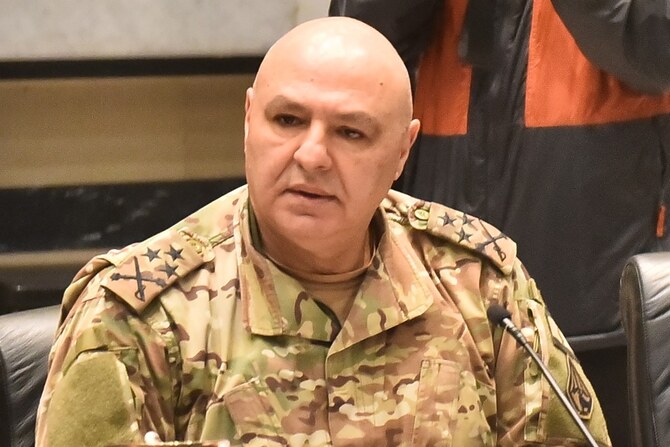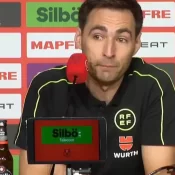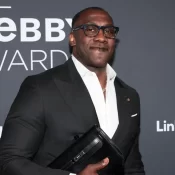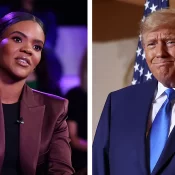
In light of Hezbollah’s decline, Lebanon is likely to conduct a presidential election
The political landscape in Lebanon has been significantly altered by Israel’s conflict with Hezbollah and the overthrow of the group’s ally, Bashar al-Assad, in neighboring Syria. Consequently, the parliament will attempt to elect a president on Thursday, with officials anticipating a higher likelihood of success.
Michel Aoun’s tenure concluded in October 2022, and the position, which is designated for a Maronite Christian in the nation’s sectarian power-sharing system, has been vacant ever since. So far, the political factions in the 128-seat parliament have been unable to reach a consensus on a candidate, as none of them possess an adequate number of seats to impose their preference.
The vote is the first test of Lebanon’s power balance since the Iran-backed Shi’ite group Hezbollah, which propelled its then Christian ally Aoun to the presidency in 2016, emerged severely depleted from the conflict with Israel.
The event occurs in the context of a broader Middle East that is undergoing historic change. For decades, the Syrian state, headed by Assad, has dominated Lebanon, both directly and through strategic allies like Hezbollah.
Three senior sources familiar with the organization’s thinking have stated that Hezbollah and its ally, the Shi’ite Amal Movement led by Parliament Speaker Nabih Berri, have relinquished their commitment to Suleiman Frangieh, their declared candidate for the past two years, in light of the changes. They are now prepared to support a less divisive figure.
General Joseph Aoun, the commander of the army, is rumored to have the support of Lebanese politicians in the United States. Jihad Azour, a senior official at the International Monetary Fund who previously served as the finance minister, and Major-General Elias al-Baysari, the head of General Security, a state security agency, are also potential candidates.
A statement from the office of Caretaker Prime Minister Najib Mikati indicated that he was pleased with the prospect of appointing a new president the following day, “God willing.”
Additionally, French Foreign Minister Jean-Noel Barrot expressed optimism in an interview with France Inter radio, stating that the election was “a prerequisite for the continuation of this dynamic of peace” and for Lebanon’s economic and social recovery.
Nevertheless, two of the sources and an analyst expressed some apprehension regarding the likelihood of any candidate being elected. 86 votes in the first round or 65 votes in the second round are required for a candidate to secure victory.
The French and Saudi envoys met with Lebanese politicians in Beirut on Wednesday, reflecting the interest of Western and regional entities in the referendum. According to four Lebanese political sources who encountered the Saudi envoy, Prince Yazid bin Farhan, last week, the latter specified preferred qualifications that indicate Saudi backing for Aoun.
Before Iran and Hezbollah eclipsed its role in Lebanon, Saudi Arabia was a significant factor, competing with Tehran for influence in Beirut.
Hezbollah continues to be observed with influence.
Berri has stated that Aoun, the commander of Lebanon’s U.S.-backed army, would still require 86 ballots for his election, as he is a state employee who is still active.
The next president of Lebanon was to be selected by Lebanon, not the United States or any external actor, according to a spokesperson for the State Department.
“We have been consistent in our efforts to press Lebanon to elect a new president, which we see as important to strengthening Lebanon’s political institutions,” the spokesperson added.
Last week, Wafiq Safa, a representative of Hezbollah, stated that there was “no veto” on Aoun. Hezbollah, which has been designated a terrorist organization by the United States, is not expected to endorse Aoun, according to the sources.
Washington and Paris established an armistice in November, which Aoun has played a critical role in maintaining. As Israeli troops and Hezbollah withdraw their forces, the Lebanese military is obligated to deploy into south Lebanon in accordance with the terms.
Lebanon continues to grapple with the aftermath of its financial collapse in 2019. Foreign assistance is urgently required to facilitate the reconstruction process.
Areas with a Shi’ite preponderance have sustained a significant amount of damage.
Hezbollah has petitioned Arab and international organizations for assistance in Lebanon, as its supply line to Iran was disrupted by Assad’s removal.
In order to promote a “national awakening,” Lebanon’s Maronite Bishops urged legislators to elect a president.
Despite the significant change in the balance of power in Lebanon, Nabil Boumonsef, deputy editor-in-chief of Annahar newspaper, was uncertain that anyone would be elected. Hezbollah’s weapons have long been a source of disagreement in the country.
He emphasized the fact that Hezbollah and Amal continue to exert influence by stating that the sole way a president could be elected would be if they reached an agreement on Aoun or Azour. However, attempted installation of their preferred candidate would “sever the oxygen from Lebanon.”
In October of last year, Saudi Minister Faisal bin Farhan stated that Riyadh had never wholly disengaged from Lebanon and that foreign nations should refrain from instructing the Lebanese.
All Categories
Recent Posts
Tags
+13162306000
zoneyetu@yahoo.com



